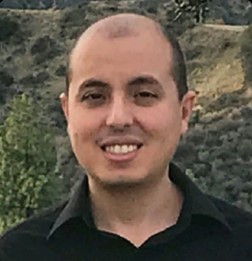*** Please note, each row and course# listed below is a separate, complete course. ***
THE POLYMER AND PLASTICS INDUSTRY: An Introduction to Commodity and Specialty Polymer Materials, Markets and Fabrication Processes
| Course# | Date | Time | Location |
|---|---|---|---|
| 217-1500 | 03/16/2026 - 03/18/2026 | 8:00 AM - 11:00 AM | Microsoft Teams |
| 217-1501 | 08/03/2026 - 08/05/2026 | 8:00 AM - 11:00 AM | Microsoft Teams |
| 217-1502 | 10/26/2026 - 10/28/2026 | 8:00 AM - 11:00 AM | Microsoft Teams |
| 217-1577 | 03/16/2027 - 03/18/2027 | 8:00 AM - 11:00 AM | Microsoft Teams |
| 217-1578 | 08/03/2027 - 08/05/2027 | 8:00 AM - 11:00 AM | Microsoft Teams |
| 217-1579 | 10/25/2027 - 10/27/2027 | 8:00 AM - 11:00 AM | Microsoft Teams |
Online Registration
CEU's: 0.5
Instructor: Dr. Sylvain Seif
Course Overview
This course introduces a wide range of polymers and the common fabrication processes. The differences between commodity and specialty polymers, including both thermoplastics and thermosets, in terms of properties, synthesis methods and applications, will be elucidated. On completing this course, attendees will be more cognizant of the incredible range of end-uses that polymers have penetrated, and the versatile fabrication processes that makes plastics such an important part of our every-day lives.
Online Course Requirements
We want you to have a great experience participating in our remote (online) courses, and for that, you’ll need the right equipment and internet connection.
Minimum needs are:
- A broadband internet connection that has at least a 2 Mbps upload and download speed.
- A computer (PC or Mac) that can support the latest web browser versions.
- At least 4 GB of RAM and adequate hard drive space.
- A microphone and a speaker.
- International Students: For virtual (online) courses, an additional fee will be assessed to cover the cost of shipping the professional binder (presentation slides), to your address. The cost of international shipping can be significant.
For more information, visit our Online Course Requirements webpage.
Instructor Biography:

Dr. Sylvain Seif has over 15 years of industrial R&D experience in Polymer Engineering, spanning several different areas in the field, and over 12 years of academic teaching experience. He completed a BS in Mechanical Polymer Engineering in 2005 followed by a PhD in Polymer Engineering degree in 2009 from The University of Akron in OH, USA. After graduation, he joined INDEVCO Group, a multinational packaging and consumer goods firm, starting up an R&D Center called “PACT”- Polymer Application Center for Technology- for the entire flexible packaging and compounding divisions of INDEVCO, which consists of 10 manufacturing facilities spread across the globe. He has also taught several engineering courses at the university level, and started R&D collaborations with 5 different universities, refereeing over 30 Masters and Final Year Projects, and being a jury member on all these projects. In 2017, as Senior Technical and R&D Expert at PACT, he helped the INDEVCO R&D Center attain ISO 17025 accreditation for lab testing.
Since 2022, Dr. Seif has been working at an environmentally conscious start-up company, Novoloop, in California, managing the polymer processing lab; having expertise in operating the twin screw compounder, injection molding and co-extrusion cast film machines. Here, he optimized the processing and properties of various durometer TPUs, whereby the polyester polyols are derived from PE recycled waste. He is also very familiar with structure-processing-properties relationships of polymers and their composites, with a strong know-how in lab testing methods for mechanical, rheological, thermal and physical properties. Moreover, Dr. Seif has over 10 academic publications and 3 patents in the polymer field, and has a strong passion for teaching and doing research and development in sustainable solutions.
- The early beginnings of the polymer industry.
- What are polymers and why are they so special?
- Monomers and other raw materials.
- Properties and specifications of polymers.
- Fabrication techniques, such as injection molding, blow molding, film extrusion, fiber spinning and foaming.
- End markets for polymers and the inter-relationship with fabrication processes.
- Commodity polymers – PE, PP, PVC, PS and Polyester.
- Specialty and engineering polymers, such as ABS, polyamide, polycarbonate and polyacetal.
- Elastomers and crosslinked rubbers
- Biopolymers and sustainability
